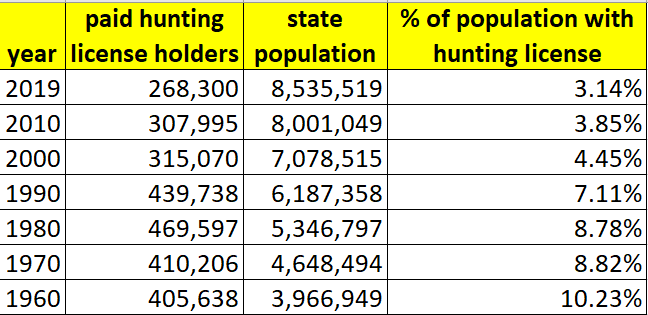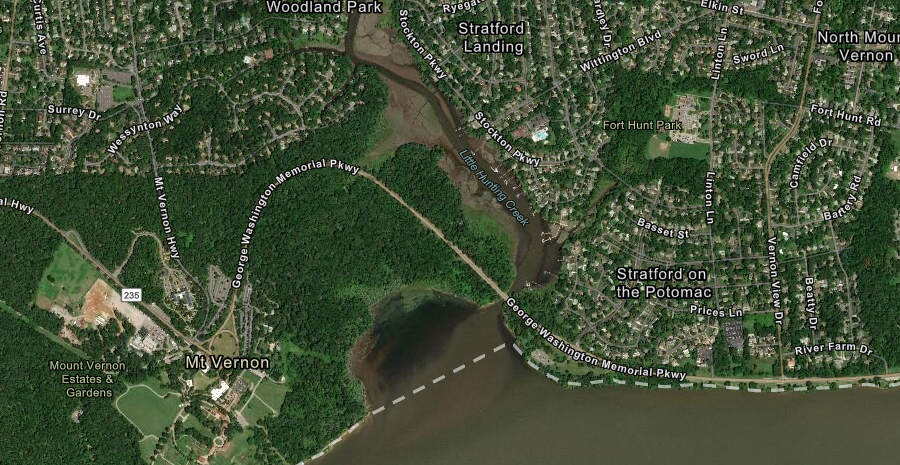
public support for hunting as a management tool could be affected, as the percentage of hunters drop
Source: US Fish and Wildlife Service, Historical Hunting License Data
Hunting is both a traditional recreational activity and a tool for managing natural resources. "Market hunting" for sale of wild animals in commercial markets was made illegal in the early 1900's, in order to conserve wildlife populations.
In many suburban areas today, deer populations exceed the socially-acceptable levels. Residents who have experienced deer-vehicle collisions or depredation of gardens and shrubs have become supporters of limiting the deer herd through adjustments in the annual hunting regulations. Under Virginia law, it is illegal to hunt an animal and then just leave it in the woods. In 2019, the General Assembly increased the penalty for "wanton waste" (not making a reasonable effort to retrieve the animal and retain it in possession) to a Class 2 misdemeanor.1
The percentage of hunters in Virginia has dropped dramatically since 1960. Acquisition of additional land for Wildlife Management Areas by the state, or for wildlife refuges by the US Fish and Wildlife Service, depends upon public support for those agencies resource management programs. Land purchases and habitat improvements funded by revenue from the sale of hunting licenses and Federal Duck Stamps will be affected by the decline of interest in hunting.2

public support for hunting as a management tool could be affected, as the percentage of hunters drop
Source: US Fish and Wildlife Service, Historical Hunting License Data
The Virginia Department of Wildlife Resources (known as the Department of Game and Inland Fisheries until 2021) issues licenses for hunting blinds in Virginia waters. Counties may block use of firearms on land within a certain distance of houses, but normally lack the authority to ban shooting from state waters.
Construction of expensive houses along the shoreline of tidal waters has resulted in conflicts between waterfowl hunters and residents. In addition to safety concerns, residents ohey object to the early-morning shooting noises from waterfowl blinds. In 2020, the General Assembly passed SB 435 to constrain hunting on three creeks in Fairfax County:3

hunting from waterfowl blinds in Little Hunting Creek was banned in 2020
Source: ESRI, ArcGIS Online